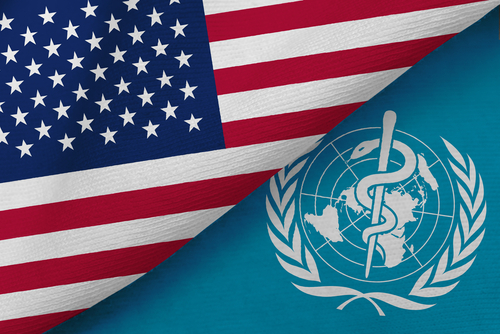
The Infectious Diseases Society of America (IDSA), along with other infectious disease associations, are opposed to the Trump Administration’s decision to withdraw the United States from the World Health Organization (WHO).
The decision will weaken the nation’s ability to control the COVID-19 pandemic in the U.S. and hurt the ability to curtail the threat worldwide, IDSA officials said. More than 12.1 million people have been diagnosed with COVID-19, and more than 550,000 people have died worldwide. The United States accounts for more than a quarter of all illnesses and 24 percent of all deaths.
“The technical guidance, expertise, and global convening power that WHO provides is critical to control the pandemic in the U.S. and abroad and to protect the U.S. from future outbreaks. As the only organization with the mandate to coordinate the global public health response to COVID-19 and future pandemics, the WHO plays a critical role in convening efforts to develop vaccines, therapeutics, and other pandemic countermeasures. Leaving the WHO weakens our ability to access these essential tools, endangers global efforts to combat other infectious diseases, and diminishes our standing as a global health leader. Terminating relations with the WHO jeopardizes the vital infectious disease research and public health work of U.S. investigators at 80 WHO Collaborating Centers across 25 states,” the medical associations said in a statement.
The statement was developed and signed by IDSA, the HIVA Medicine Association (HIVMA), the Society for Healthcare Epidemiology of America (SHEA), the Pediatric Infectious Disease Society, and The Society of Infectious Diseases Pharmacists (SIDP).
“Leaving the WHO also threatens U.S. investments in efforts to eliminate HIV, tuberculosis, malaria, measles, polio and other infectious diseases,” the statement reads.
Leaving the WHO also carries potential ramifications in the ability to develop an effective seasonal influenza vaccine. The CDC works with WHO to collect and analyze influenza virus samples from around the world to develop a vaccine for the Western Hemisphere.
“The U.S. has three seats on the Global Advisory Committee on Vaccine Safety that decides the composition of the annual vaccine for next influenza season, and losing these seats means that the U.S. will not have input into the constitution of this critical vaccine. The U.S. Food and Drug Administration also runs one of four WHO regulatory labs that help determine the correct amount of antigen for the development of flu vaccine,” they added.
The groups concluded that this is an “ill-advised time” to address shared public health threats alone.
“During a pandemic of historic proportions we need more global coordination, collaboration, and partnership – not less. As infectious diseases experts, we welcome the agency’s willingness to undergo an independent review of its COVID-19 response and openness to a subsequent reform process. We call on Congress to stand in support of WHO and provide full funding in the fiscal year 2021 funding bill and future COVID-19 supplemental bills. We call once again on the administration to reconsider this decision that will have long and far-reaching consequences.”




